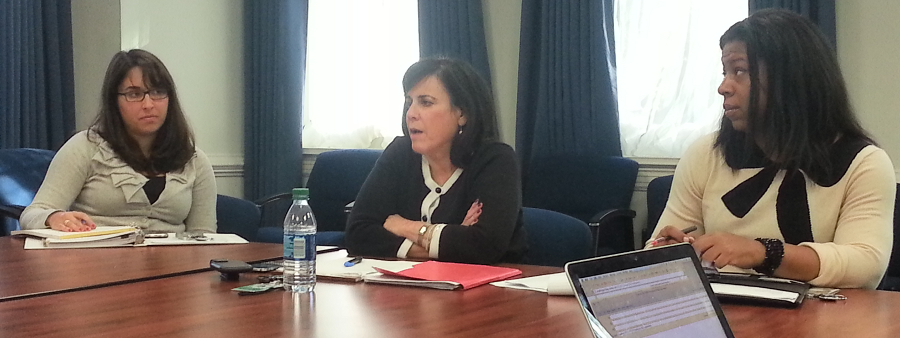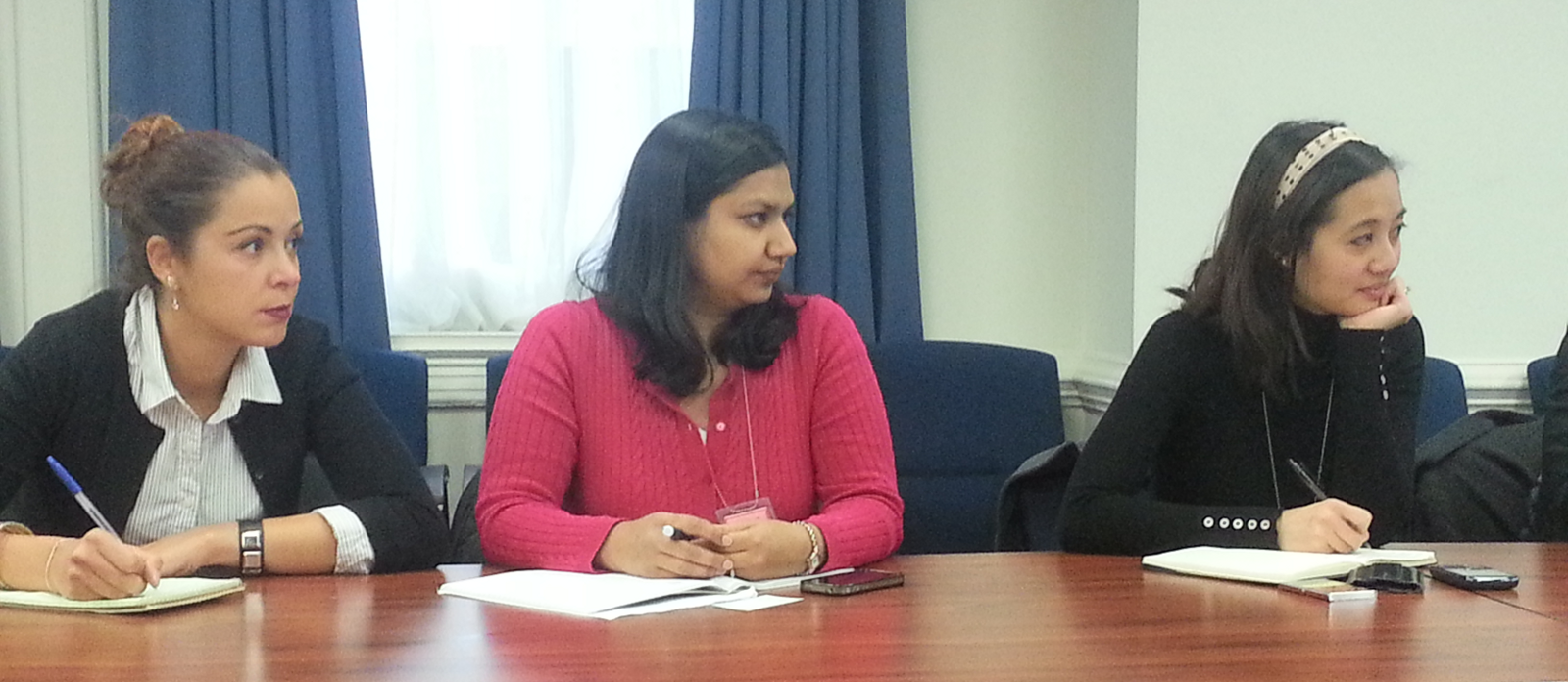Today, January 10, 2013, USTR held a remarkably uninformative briefing on the negotiations for the Trans Pacific Partnership (TPP) agreement for non-industry NGOs. Barbara Weisel (below center), the chief USTR negotiator for the TPP, led the briefing, accompanied by two persons from the public engagement offices.

|
| Rebecca Rosen, Barbara Weisel, and Tiffany Enoch of USTR |
As part of USTR’s “separate but ..” policy, industry lobbyists and trade associations were given separate briefings, and as a consequence of the segregation, our briefing was probably the least revealing. Contributing to the uninformative nature of the briefing was the fact that aside from Weisel, none of the USTR substantive experts were in attendance.
The USTR had limited invitations to one representative per organization (KEI and Public Citizen both had multiple staff members attend under different organizations), but the reason for the one person limit was not obvious, as the room as nearly empty, with only a handful of persons in attendance.
Earlier KEI had asked USTR to make a call-in option available to persons who could not attend a meeting in Washington, DC. I told USTR that its decision to eliminate the call-in options for the meeting reinforced the message that USTR did not care about people who did not have a DC presence. We mentioned that USTR allowed call-ins during the ACTA briefings. USTR responded by saying it was already doing enough to make the briefings accessible.

|
| Burcu Kilic of Public Citizen, Rashmi Rangnath of Public Knowledge and Krista Cox of KEI were among the NGOs listening at the briefing. |
I asked USTR if this week’s proposal by the USDOJ and USPTO to dramatically restrict the availability of injunctions for the infringement of standards essential patents (SEPs) would be subject to litigation by patent owners under the TPP’s still secret Investment Chapter text. Weisel said she did not know, but encouraged us to follow up, after the briefing. Public Citizen asked a follow up statement on the Investment chapter, and was also asked for a follow up conversation.
In one bit of news, Weisel did say that the USA has not yet decided if it will table a proposal for 12 years of exclusivity for test data for biologic drugs.
Public Citizen’s Global Trade Watch group complained about the New Zealand round of negotiation, where NGO access to the negotiating venue was blocked. USTR said “we are doing our best” to make the stakeholder involvement work, suggesting it was sometimes “too expensive” for the hosts to have the space to interact with the public.
I pressed USTR on the continued secrecy of the text, noting that it was odd to have people expected to comment intelligently on a text when we had to rely upon the type of leaks that led to the jailing of Bradley Manning. I noted that the ACTA text was released to the public while it was being negotiated, that the full FTAA text had been released, and noted that WIPO releases its negotiating texts frequently, sometimes as many as three times in the same day. USTR said it was not willing to “negotiate in public.”
I brought up the fact that we had asked repeatedly for a provision in the TPP to require countries to take steps to ensure domestic laws would permit the cross border import and export of copies of copyrighted works created under exceptions for persons who are blind or have other disabilities. USTR said that there was nothing in the text for blind people. I asked, why, but USTR declined to respond.
At the end of the meeting, I mentioned our concerns about the text in the TPP as regards the copyright three-step-test. We reiterated our position that important elements of US fair use law should not be subject to the three-step-test, and in particular, that various specific exceptions under the Berne Convention have more liberal and favorable to fair use standards, and that it would be a big mistake for the TPP to allow foreign countries to challenge US fair use under the three-step test. Weisel said that USTR did not agree, and was willing to have the US fair use laws subject to TPP dispute resolution under a three-step-test standard.
The USTR blog on the meeting is available here.